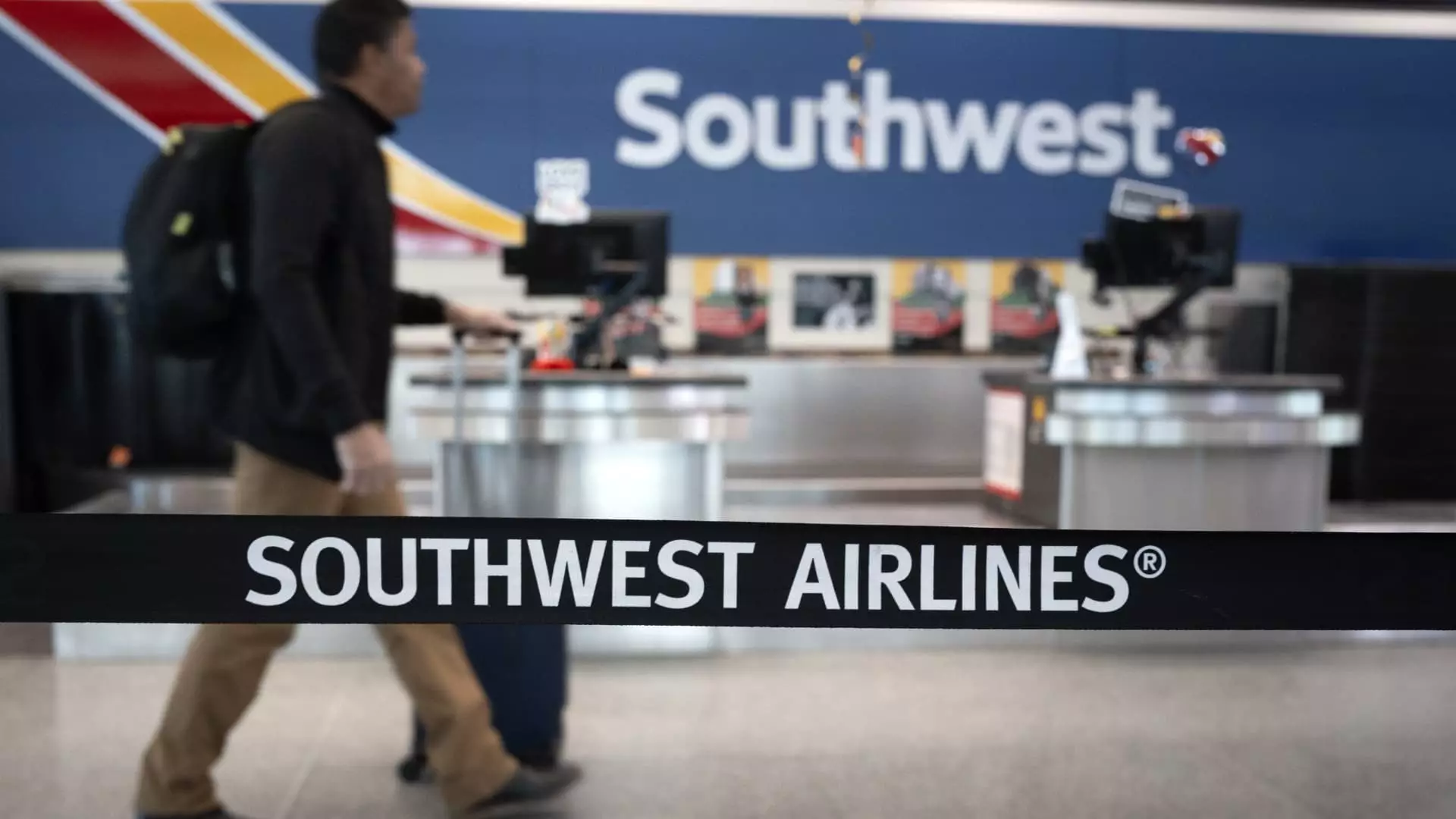For decades, Southwest Airlines has been heralded as a champion of traveler-friendly policies, with its hallmark slogan of “two bags fly free” standing as a testament to that philosophy. This free-spirited approach to checked baggage not only differentiated Southwest from its competitors but also cultivated a sense of loyalty among millions of customers. However, starting Wednesday, a seismic shift will occur as the airline abandons this cherished policy in favor of an inevitable revenue grab, joining the ranks of other airlines that have long capitalized on baggage fees. It’s a betrayal wrapped in financial necessity, and one that could leave a lasting negative impression on their once-dedicated customer base.
The coming changes, ignited by pressures from investors like Elliott Investment Management, reflect a broader trend in the airline industry prioritizing profit over customer experience. By introducing checked baggage fees, Southwest may generate substantial revenues—projected at a staggering $7.3 billion for U.S. airlines last year alone—but at what cost to the customer? This shift not only raises the specter of inconvenience but also threatens to tarnish the airline’s image as a customer-centric carrier.
Hidden Costs: Financial Strain on the Average Traveler
While the expected fees for checked bags hover around $35 to $40, the real problem lies in the cumulative effect of multiple surcharges that airlines impose on travelers. For families or groups, these costs can spiral out of control, creating a financial burden that may deter many from flying altogether. It’s the age of hidden fees, where a budget-friendly ticket can quickly transform into an expensive ordeal when factoring in the additional charges for baggage, seat selection, and meal services.
This philosophy of bait-and-switch pricing erodes the trust that was once synonymous with Southwest, leaving customers resentful. No longer a joyful journey, air travel has become a realm of financial gymnastics, forcing passengers to reassess their flying habits and budgets. The tragedy is that many loyal customers may now feel compelled to consider low-cost carriers—despite the often dreadful service—just to avoid the burden of baggage fees.
Southwest’s Downward Spiral: Are They Throwing Away Their Identity?
In addition to implementing baggage fees, Southwest is embarking on an overhaul of its business model, phasing out its open-seating system—a unique aspect that allowed fliers the freedom to choose their seats upon boarding—and launching a basic-economy fare reminiscent of its competitors. For those who once felt empowered and liberated by the airline’s unconventional policies, these changes feel like a death knell for the Southwest identity.
Loyal customers, who used to relish the thrill of scoring a prime boarding slot through strategic check-ins, now face the indignity of assigned seats. This move undermines the culture of spontaneity and community that has long defined the airline’s brand. What’s next, a rigorous boarding process akin to that of their less favored rivals? It begs the question: is the Southwest Airlines we once knew slipping away?
Customer Reactions: An Outcry of Discontent
A palpable wave of frustration has erupted on social media since the announcement of the new baggage fee policy, capturing dissenting voices that feel betrayed. Customers’ anger is not only directed at the baggage fee but also at the myriad changes that dilute what once set Southwest apart. For a company that has cultivated an image of approachability and customer care, the backlash from loyal flyers could not be more severe.
CEO Bob Jordan may claim that there has been no “book-down” since the announcement, yet such statistics feel cold and disconnected when considering the emotions tied to loyalty. The company appears to underestimate the backlash from its core audience—those who have flown with Southwest for decades, cherishing the very ideals this change shatters. As we witness the transformation of this beloved airline into another faceless conveyor of economic profit, one can’t help but question whether the new policies are a harbinger of an existential crisis for the brand.
What’s Next: Will Loyalty Survive the Changes?
As Southwest Airlines embarks on this perilous path of change, a pressing question looms: can customers still maintain their loyalty amid the turbulence of rising costs and diminished service? The erosion of free baggage and the introduction of uncharacteristic policies may indeed provoke a seismic shift in traveler allegiance. Once a symbol of affordable, family-friendly air travel, the airline must now confront the ramifications of prioritizing profit.
Beyond the logistics of ticket prices and baggage fees, the defining sentiment among anxious travelers remains a longing for trust. Will Southwest regain this trust and finesse its way back into the hearts of its customers, or is this transition a one-way street into the corporate abyss? It’s a vital juncture for Southwest Airlines, as its future hinges on the delicate relationship it has with its passengers—one that is unraveling thread by thread.

